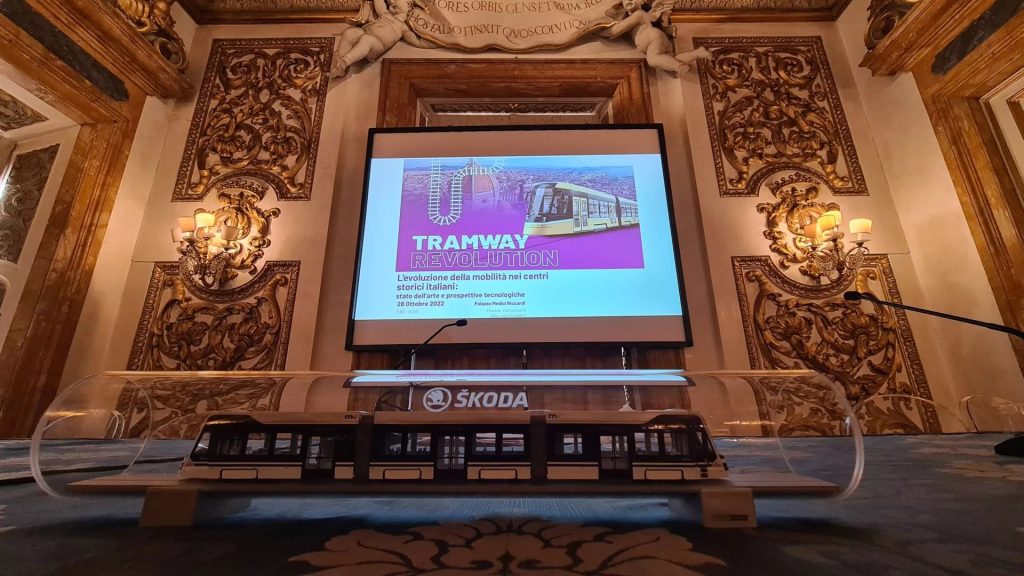 Škoda Group has opened the office of its new subsidiary in Florence, Italy, appointing Olesea Lachi as the managing director, which previously has been responsible for sales of rolling stock in the Group.
Škoda Group has opened the office of its new subsidiary in Florence, Italy, appointing Olesea Lachi as the managing director, which previously has been responsible for sales of rolling stock in the Group.
In Italy, Škoda Group will focus its attention on rail transport and rolling stock for urban transport. It will offer its a comprehensive solution, from the manufacture of individual components to the delivery of complete vehicles and their subsequent maintenance. By making a similar decision in the past, Škoda Group has successfully entered the German or Finnish market, which has enabled it to be more within reach of its clients and to develop its business in these areas in a fundamental way.
Škoda Group has already worked on several orders for Italian customers in the past. Its trolleybuses can be seen in Bologna or Cagliari, where the Group has also supplied trams. Passengers can take electric units for a ride in Domodossola. Italy is thus one of the fifty countries where Škoda has delivered its products.
To mark the festive opening of the subsidiary’s office, the Group organised an event called “Tram Revolution”, which was attended by representatives of Italian institutions and industry experts.
At the end of October, city of Florence held an event where opinions, studies, experiences, and specific programmes on the future of mobility were exchanged. Discussions were held on how to sustainably improve the vitality of historic cities such as Tuscany, which characterise Italy in a distinctive way.
The Regional Councillor for Mobility Stefano Baccelli, the Mayor of Florence Dario Nardella and the “City Manager” of Florence Giacomo Parenti, together with Didier Pfleger (CEO of Škoda Group), Olesea Lachi and industry expert Giovanni Mantovani, discussed the systemic vision of urban mobility and hypotheses for its evolution thanks to trams. The discussion highlighted the weaknesses of areas with a medieval/renaissance urban layout, such as Florence, and then revealed some development plans to show what the city of the future could look like using the latest technologies, such as those of Škoda Group.
“The experience of Florence speaks for itself: the tram is essential for the daily life of cities, changing and improving them,” Florence Mayor Dario Nardella said.
Mobility and road system solutions that guarantee the best sustainability, liveability and safety for citizens are proposed. The tram route appears to be a throwback to the past, but instead is a modern and efficient infrastructure and a symbolic example of virtual mobility. In the city of the future, according to Škoda Group, the tram is self-driving and runs completely safely thanks to the latest technology. Soon, battery-powered vehicles that are not only environmentally friendly and sustainable, but also able to move more quickly in historic centres with narrow streets, will be more common in cities. After all, the Tuscan capital has to reckon with the duo of beauty/sustainability, as it is a UNESCO heritage site and has recently been shortlisted for the nine Italian capitals that aim to be ‘zero-emission’ or climate neutral by 2030.
“The specifics, preferences and habits of Italian operators are like the Czech ones. Many cities in both countries are UNESCO heritage sites and offer stunning historic centres characterised by narrow streets, arches with small, curved radius, which place higher demands on vehicle manufacturers. Medium-sized cities have a long tradition of trolleybus transport, but often have to cross several sections without catenary. The countries are also linked by their focus on the Green Deal and sustainable mobility solutions. All this together makes the Škoda Group particularly focused on the Italian market,” Olesea Lachi, Managing Director of Škoda Group’s Italian subsidiary said.
Share on:



